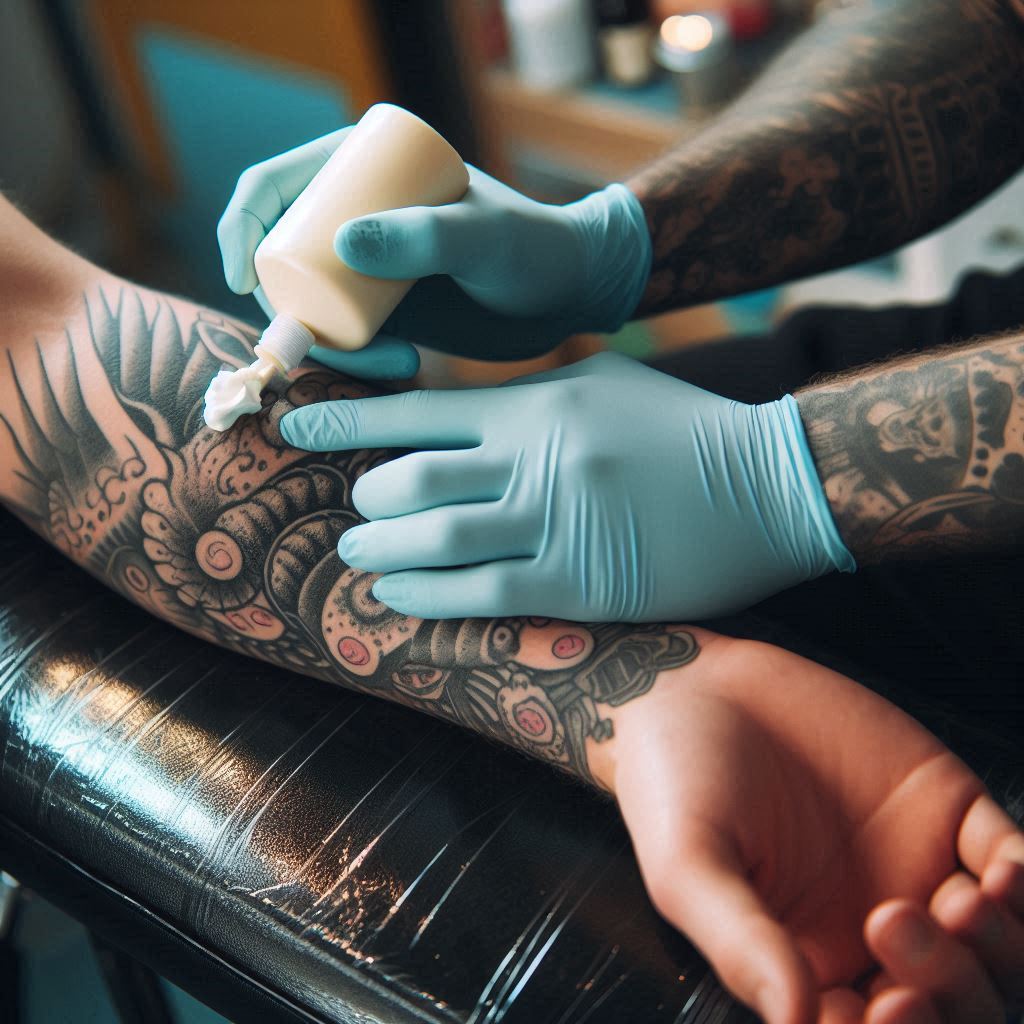Introduction: What is the role of numbing cream in the tattooing process?
Numbing cream helps reduce pain during tattooing by numbing the skin’s outer layer, making the process more comfortable, especially for those with low pain tolerance or for tattoos in sensitive areas. However, it should be used carefully to avoid affecting the quality of the tattoo.
What is the Role of Numbing Cream in the Tattooing Process?
How Numbing Creams Work for Tattoos
Tattoo numbing creams are designed to remove the pain by numbing the skin’s outer layer. The creams contain local anesthetics like lidocaine or benzocaine, which inhibit the transmission of nerve impulses to the brain, thereby making the area less sensitive.

What are Tattoo Artists’ Opinions Concerning the Application of Numbing Creams?
Do Tattoo Artists Approve the Use of Numbing Creams?
Although some tattoo artists have no problem doing tattoos with the use of numbing creams, others do. Some of these artists feel that numbing creams will disrupt the tattooing procedure, which in turn will determine how the skin will take in the ink. For instance, the skin that has been numbed will be less sensitive to the needles, and it will become harder to achieve a clean, rich tattoo. However, some are comfortable with the use of numbing creams as long as they are applied correctly and the skin is not over-saturating.
Why Some Tattoo Artists Do Not Use Numbing Creams
One of the reasons that tattoo artists avoid using numbing creams is that they do not want it to alter how the skin is affected by the tattooing procedure. The cream may also create a layer on the skin that would cause it to be harder for the needle to pierce through the skin in a healthy way. Others believe that pain is part of the tattooing process and that the client must learn to cope with it as a skill. Nevertheless, most artists will respect the client’s desire to use numbing cream if safe and does not affect the tattooing process.
Do Numbing Creams Have Any Impact on Tattoo Quality?
Will Numbing Creams Affect Ink Quality in Tattoos?
Numbing creams should not have a significant effect on the quality of the tattoo ink or final product if used correctly. There are, nonetheless, concerns that overuse of numbing cream or improper use will affect the quality of ink penetration into the skin. If the skin is too numb, the tattoo machine won’t be able to deliver the clean lines and shading desired by the artist. This is why you have to listen to the artist’s warning and ensure that the cream is applied minimally.
How Can You Prevent Reducing Tattoo Quality Using Numbing Creams?
In order not to undermine the quality of the tattoo, one should apply the numbing cream according to instruction. Use little of it and allow adequate time for the cream to act prior to your session. Consult with your tattoo artist beforehand so they can give instructions on how to use the cream without hindering the work.